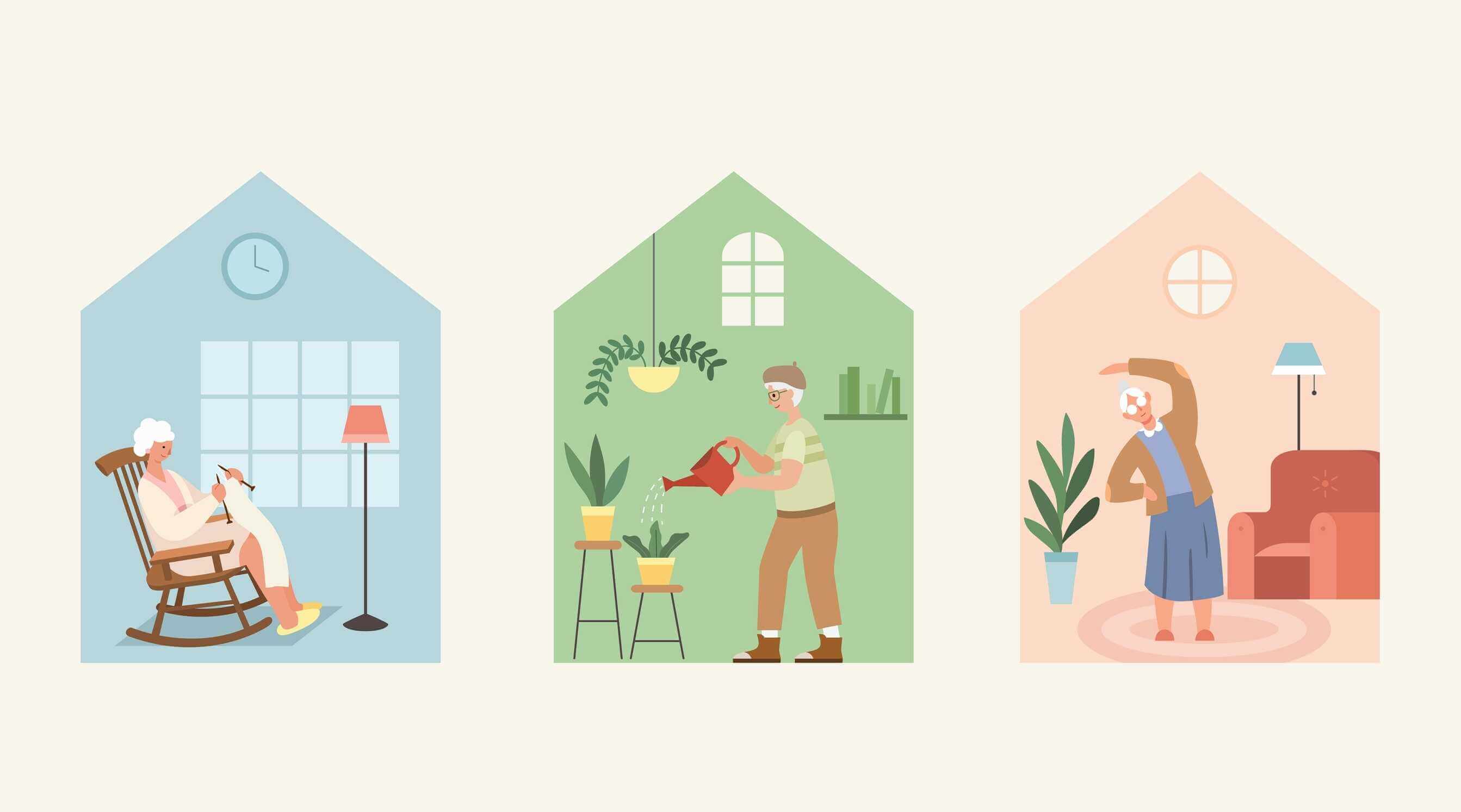helping A Loved One Live Independently At Home

- Medical alert systems (or personal emergency response systems). A wide variety of options are available, including GPS tracking and automatic fall detection.
- Monitors, alerts and alarms. Alerts include motion sensors, video camera and audio monitors, floor mat and bed pad alarms, door alarms, stove burner alerts and smart medication organizers/dispensers. Integrated systems are available that combine all of these options. A smart home and security system can be synchronized so that you can lock and unlock doors, check and change the temperature in a loved one's home, monitor who goes in and out, and even raise or lower window blinds from a distance.
- Health tracking tools. Apps and devices that track blood pressure, blood sugar, weight, nutrition and other health issues are readily available, and some can send reports to your loved one's doctors.
- Apps can aid communication among your caregiving team members, create medication lists, and provide caregiving tips or resources. There are also apps to set up transportation and find paid caregivers.
- Connections. Technology that helps fight isolation in the home makes it easier for your loved one to visit with friends and family via video chat and smart speakers.
Investigate what assistance may be available via your area agency on aging, Veterans Affairs Department or other community-based organizations. Physical, occupational, speech and music therapy can be provided at home. Housekeeping, chore services and meal delivery are often the first supports people need as they age. Other useful services for home-based care include mobile doctors, X-rays and lab tests, and dialysis; home health aides can help with activities such as bathing, dressing and toileting. If your loved one is a veteran, ask about home-based primary and the home health services from the VA.
5. Do your homework when hiring paid caregivers.
It's wonderful to have help, and there are many caring and dedicated people willing to provide it. But, of course, there are others who are not so reliable. Mom had several falls due to untrained paid caregivers, and one stole her jewelry. When hiring caregivers, be sure to do background checks and get references, and carefully monitor their work. Stop by — preferably at unexpected times — to check in on professionals or volunteers going to the home.
As your loved one's needs change, you can creatively increase support in the home. Dad lived with me for six years; he died, at age 94, in his own bed, surrounded by his daughters, with the support of hospice care, provided through the VA. I’m so grateful I was able to adhere to his wishes and care for him at home. Looking back, while it was challenging, I have no regrets, and, overall, it was an extremely rewarding experience.
Popular Products
-
 5V USB Heating Pad for Jackets
5V USB Heating Pad for Jackets$45.99$31.78 -
 Reusable Adult Bib with Crumb Catcher
Reusable Adult Bib with Crumb Catcher$20.99$13.78 -
 Inflatable Portable Hair Washing Basi...
Inflatable Portable Hair Washing Basi...$68.99$47.78 -
 Portable Unisex Travel Urinal
Portable Unisex Travel Urinal$49.56$24.78 -
 Foldable Garbage Picker Grabber Tool
Foldable Garbage Picker Grabber Tool$93.56$46.78